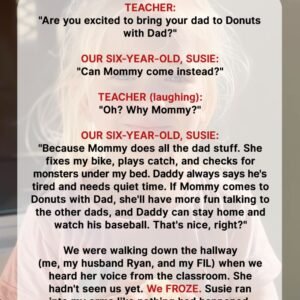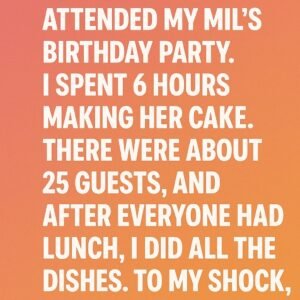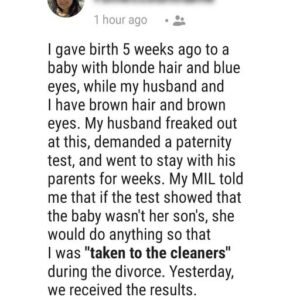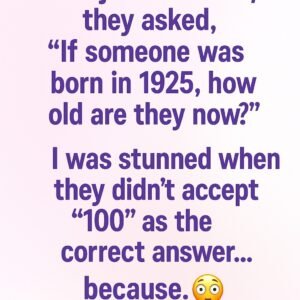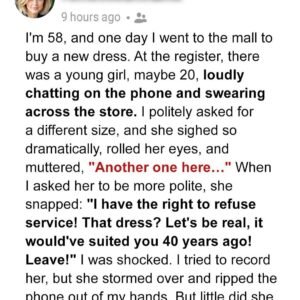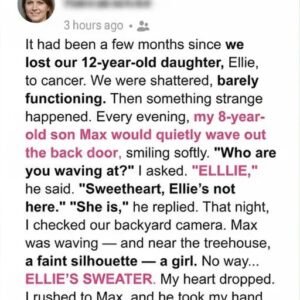At the elegant Sterling Estate Restaurant, chandeliers glittered like stars above crystal tables. Guests in designer suits murmured softly, glasses clinking to the tune of soft jazz. At the center table sat Thomas Sterling, a pharmaceutical tycoon known for his cold precision and his billion-dollar empire.
He raised a glass of vintage Bordeaux — a rare 1982 bottle — to his lips. But before he could drink, a sharp, panicked voice tore through the calm.
“Stop! It’s poison!”
Gasps rippled through the room. All eyes turned toward the doorway, where a thin, barefoot Black boy — maybe thirteen — stood trembling. His clothes were torn, his hair unkempt, but his eyes burned with urgency.
Security lunged forward. “Get that kid out of here!”
But the boy shouted again, pointing at the wine. “It smells wrong! Bitter almonds! That’s cyanide!”
Sterling froze mid-motion, the rim of the glass inches from his lips. His sharp mind registered the phrase bitter almonds — a telltale scent of potassium cyanide, a lethal toxin.
“Wait,” he said quietly, lowering the glass. “Bring it here.”
The room went silent. One of his security guards hesitated, then handed him the bottle. Sterling sniffed it and frowned. The boy was right — there was a faint, metallic bitterness beneath the wine’s aroma.
“Call my lab,” Sterling ordered. “Test this immediately.”
Minutes later, his private chemist arrived with a portable analyzer. The result flashed on-screen: Positive for cyanide.
The crowd erupted in chaos. Reporters started filming, waiters whispered, and the head chef looked like he might faint.
Sterling turned toward the boy, his icy composure cracking. “How did you know?”
The boy swallowed nervously. “I used to… help my dad in his lab. He taught me what cyanide smells like.”
Sterling’s expression darkened. “What’s your name?”
“Jamal,” the boy said softly. “Jamal Washington.”
That name hit him like a hammer. Washington. His heart skipped.
“Where’s your father now?” Sterling asked slowly.
Jamal’s eyes dropped. “He’s dead. The lab exploded three years ago.”
Sterling’s hand trembled slightly as realization dawned — Michael Washington, his old colleague, had died in a mysterious “accident.”
And now, standing before him, was his friend’s son — the boy who had just saved his life.
After the chaos settled, Thomas Sterling insisted Jamal stay for questioning. The boy was thin, hungry, and wary, but he spoke clearly, every word steady.
“I’ve been living behind the alley near this place,” Jamal admitted. “I wasn’t stealing, sir. I just… smelled something wrong from the kitchen window when they opened the bottle.”
Sterling nodded slowly. “You recognized cyanide by scent?”
Jamal gave a shy nod. “My dad taught me chemistry. He said if you know science, you can protect people.”
The words pierced Sterling’s chest. Michael Washington had said the same thing years ago, when they co-founded a small drug research lab — before Sterling bought it out and Michael’s accident had ended everything.
Sterling’s assistant entered with a grim look. “Sir, we found traces of cyanide in the cork and inside the waiter’s station. One of our competitors, Hawthorne Industries, recently purchased a controlling share of the vineyard.”
Sterling’s face hardened. “Richard Hawthorne.” His rival for decades — ruthless, ambitious, and willing to destroy reputations.
The waiter who served the wine was arrested that night. Under pressure, he confessed: Hawthorne had paid him $50,000 to “spike the drink and make it look like food poisoning.”
Jamal had prevented a murder.
Later, Sterling found the boy sitting quietly outside the police cordon. “You saved my life,” he said. “But tell me the truth — your father, Michael Washington. Did he ever say why he left Sterling Pharma?”
Jamal hesitated, then nodded. “He said someone stole his research and silenced him when he tried to tell the truth.”
Sterling’s breath caught. “He thought it was me?”
Jamal didn’t answer.
That night, Sterling couldn’t sleep. He dug into old records — lab reports, contracts, insurance claims. The deeper he looked, the more pieces fit together: the faulty wiring blamed for the explosion, Hawthorne’s name hidden behind shell companies, the stolen patents.
He stared at a photo of himself and Michael from years ago, smiling in lab coats. Then he looked at Jamal’s sleeping figure on his guest-room couch.
“I owe your father more than I can ever repay,” he whispered.
And he vowed to make things right.
Over the following weeks, Thomas Sterling turned his resources toward two goals: bringing Richard Hawthorne to justice, and giving Jamal a future.
First came the investigation. Sterling’s legal team uncovered files proving that Hawthorne had orchestrated both Michael Washington’s death and the poisoning attempt. Within a month, federal agents raided Hawthorne’s offices, arresting him for fraud, bribery, and attempted murder.
Next came redemption. Sterling arranged for Jamal and his ailing mother to move into a comfortable home. He hired private tutors and re-enrolled Jamal in school.
But what impressed Sterling most was not Jamal’s intelligence — it was his humility. Despite everything, the boy’s greatest wish was to finish the research his father had started: an experimental compound that targeted cancer cells without harming healthy ones.
“Dad said it could save millions,” Jamal told him one night. “But he never got the chance to finish.”
Sterling smiled. “Then we’ll finish it together.”
Months turned into a year. Side by side, the billionaire and the boy worked in a state-of-the-art lab, refining Michael Washington’s old notes. Jamal’s intuition amazed the scientists — he saw connections others missed.
Finally, they achieved it: a breakthrough compound that passed every early trial. It would soon become a revolutionary treatment.
At the press conference announcing the discovery, Sterling introduced Jamal to the world.
“This young man,” he said, voice trembling, “saved my life — and reminded me what true genius looks like. His name is Jamal Washington, son of Dr. Michael Washington, whose legacy lives on today.”
The audience rose in applause.
When reporters asked Jamal what motivated him, he simply said,
“My dad taught me that knowledge is meant to save lives — not destroy them. And I think he’d be proud of us.”
Months later, Jamal was accepted into MIT with a full scholarship. Sterling stood beside him at the airport, smiling like a proud father.
“Keep learning, Jamal,” he said. “And never forget where you came from.”
“I won’t,” Jamal replied softly.
As the boy walked away toward his future, Sterling realized something profound: money could buy power — but only kindness could buy redemption.
